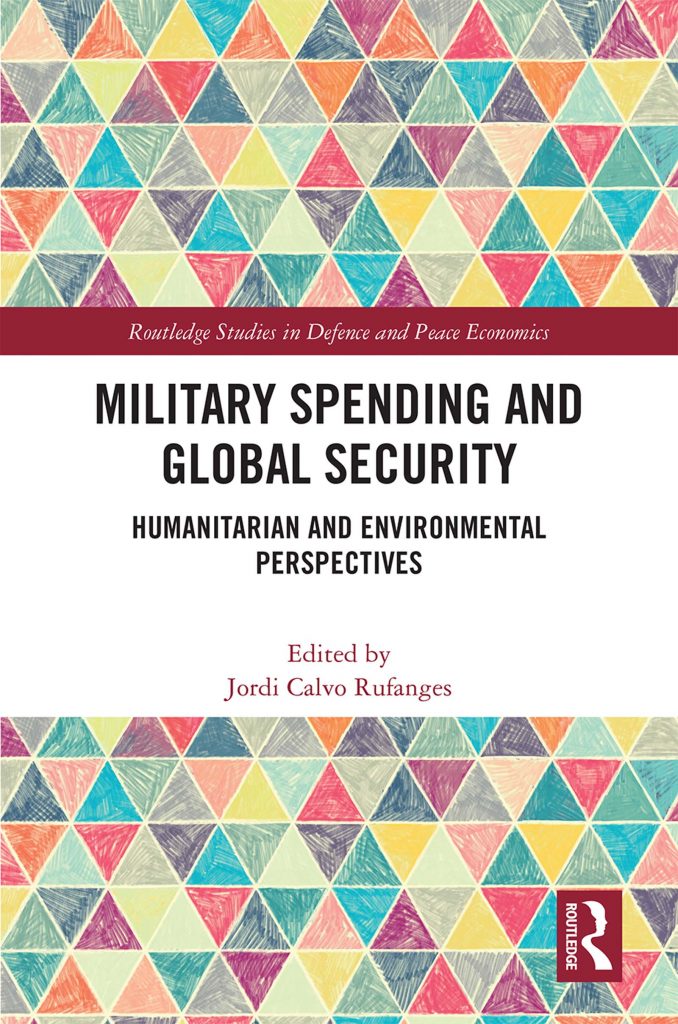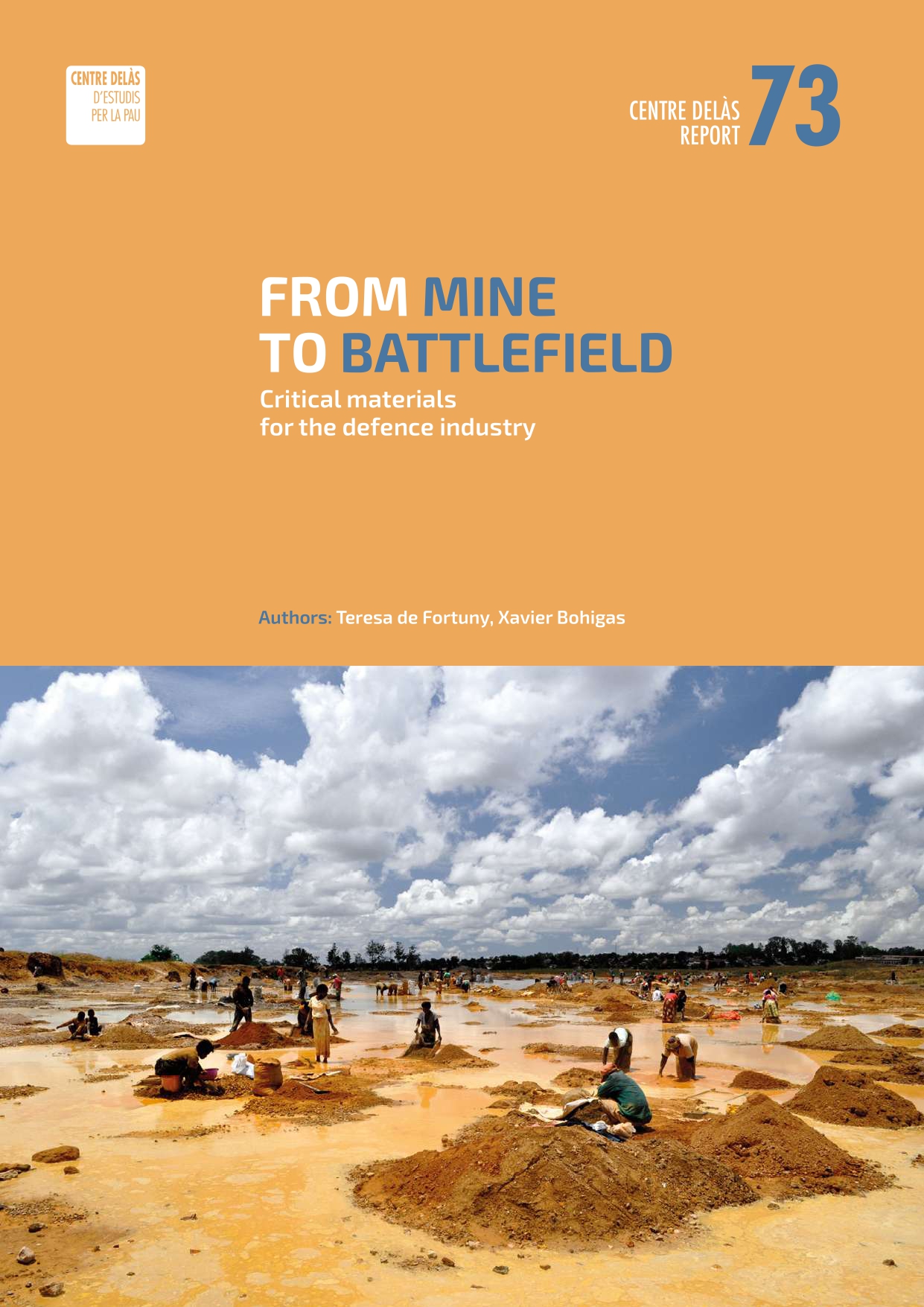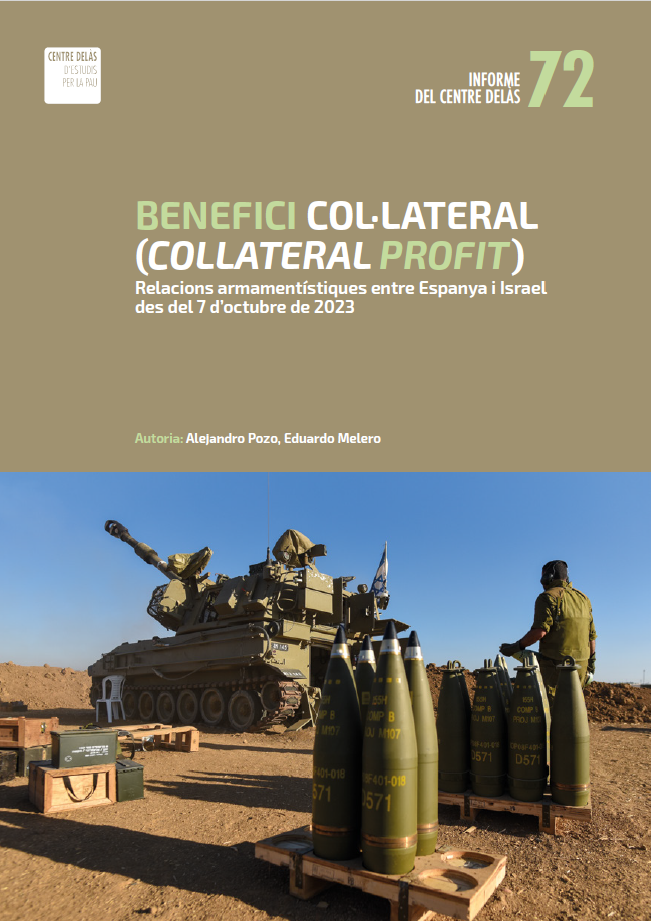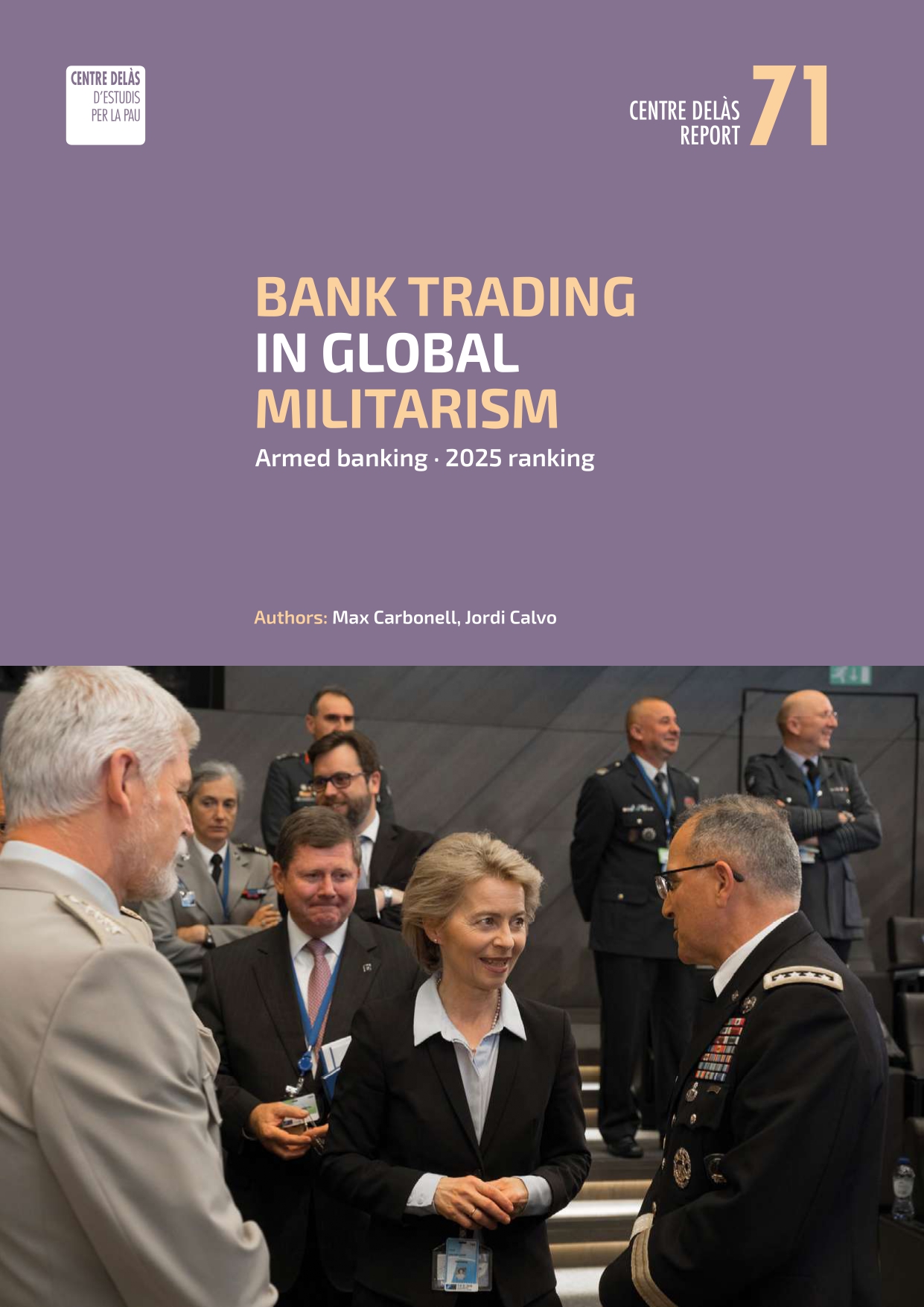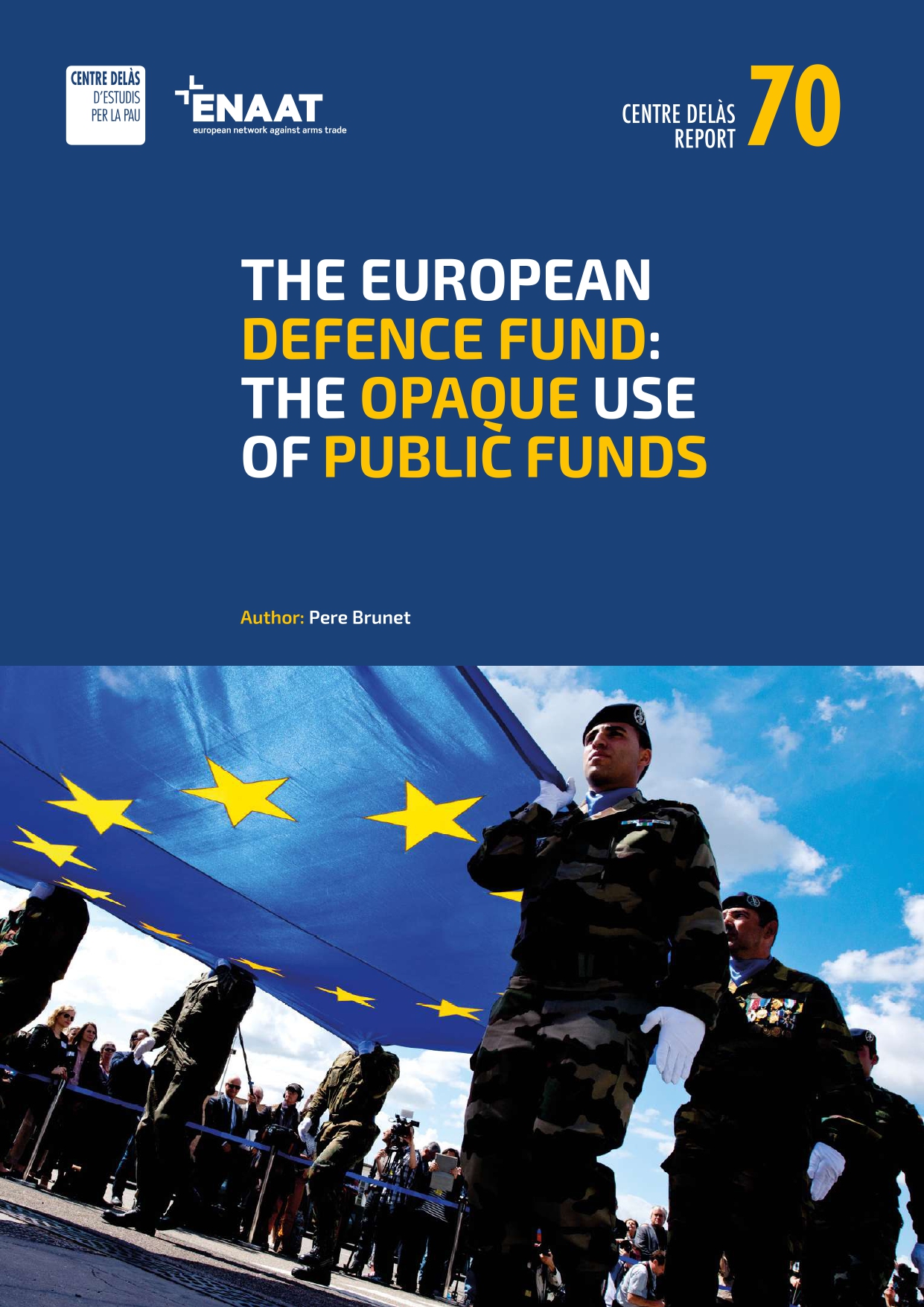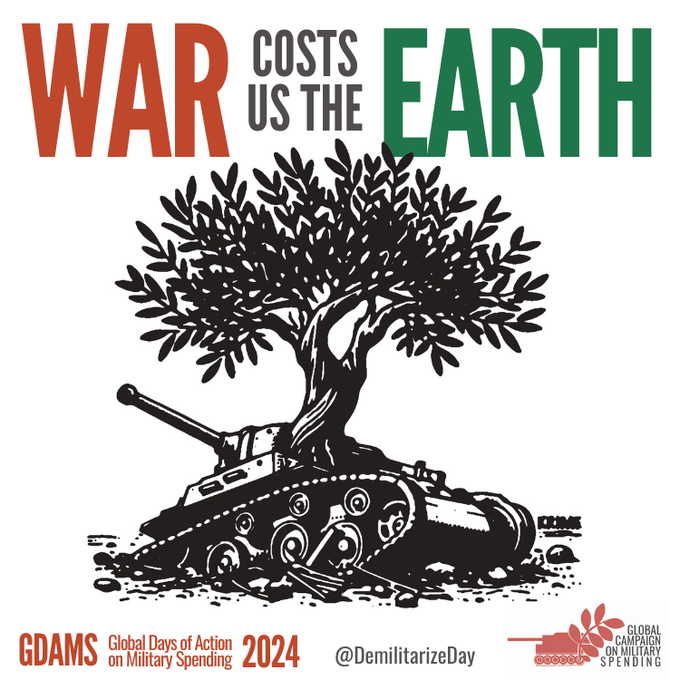Routledge publishes the book “Military Spending and Global Security: Humanitarian and Environmental Perspectives” edited by Jordi Calvo
Routledge has launched today the book “Military Spending and Global Security: Humanitarian and Environmental Perspectives”, edited by Centre Delàs Coordinator, Global Campaign On Military Spending (GCOMS) Coordinator and International Peace Bureau (IPB) vice-president, Jordi Calvo Rufanges. The book is part of a joint project of Centre Delàs d’Estudis per la Pau and IPB, carried out within the framework of the Global Campaign of Military Spending, which has the support of Barcelona’s City Council.
The book analyzes the current levels of military expenditure, what do they respond to and what do they entail for global security. Throughout it various researchers provide a broad and detailed analysis of military expenditure as a key factor of global instability, analyzing its trends and the consequences of its constant increase.
Authors argue that the increasing military spending is not a good response to emergencies that militarization itself has helped create and claim that it is in fact both a cause of and a response to serious challenges facing our society. The book also explains why people are not well-served by States continuously trying to compete with one another in terms of military strength, examines the scope of military expenditure around the world, and explains how militarism is linked to conflict and security threats and how military spending prevents us from adequately dealing with global environmental challenges.
Aude-E. Fleurant and Yannick Quéau examine current tendencies in their chapter “Trends in global military expenditure: drivers of increases and causes of concerns”, Centre Delàs’ researcher Chloé Meulewaeter analyzes the relationship between “Military expenditure, arms transfer and armed conflict”, and Alejandro Pozo examines “Military spending, foreign military operations and counter-terrorism”. Joseph Gerson, in turn, writes about the United States in his chapter “Empire, US military spending and campaigning for a moral budget” and Laëtitia Sédou, Mark Akkerman and Bram Vranken talk about the EU in their chapter “Militarisation of the European Union: fresh money for the military industry”. Finally, Tarja Cronberg and Dave Webb analyze the “Costs of nuclear weapons”,Pere Brunet and Chloé Meulewaeter examine the relationship between “Military Spending and Climate Change”, and Colin Archer studies the “Peace Movement work on military spending”. This book is a must-read for scholars, researchers and students from a wide range of disciplines as well as for professionals in the third sector and activists working on issues related to peace, security, militarism and social and climate justice.
Find the book available for purchase at Routledge’s website.

